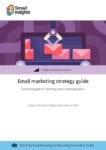It’s crucial you choose your words wisely, especially when you are crafting an email subject line.
Staying on top of all the emails you send — whether they’re automated or one-shot kind of emails — can be tricky, especially when you don’t have enough time to engage with all of them and update them regularly. That’s why it is crucial you choose your words wisely, especially when you are crafting an email subject line.
In this blog post, I’ll share tips and tricks to help you write actionable email newsletters, as well as send more effective cold outreach emails.
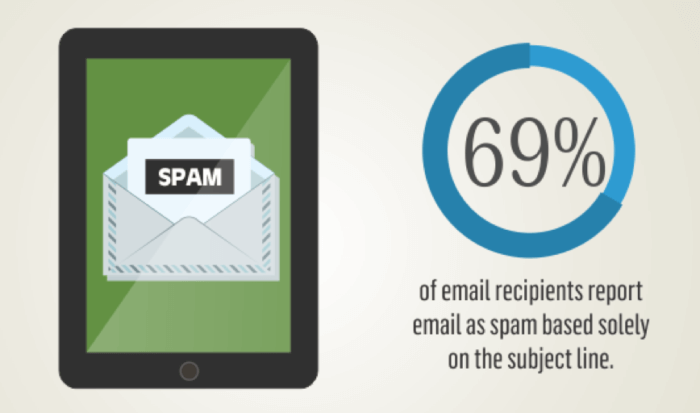
Image Source: Invespcro
In 2019, it’s estimated that mobile email will account for 24% to 77% of open emails, depending on the market and audience they’re sent to.
This is huge.
On the one hand, it means that you get to reach a large part of your audience even when they are on the move. On the other hand, it means you need to think about sending emails with shorter, optimized subject lines in order to increase your open rates.
Now, is there a cookie-cutter answer to writing the perfect subject line? Unfortunately not, but I can help you in your initial efforts and prove good grounding at least.
The importance of email subject lines

A non-digital marketer may find the subject line comprising of just a few words acceptable, but – as any digital marketer knows – the subject line is the only chance you have to convince recipients that your message is worth reading. This means that getting it right can make all the difference. On top of this, you need to remember that carefully writing, testing and optimizing subject lines will have a sizable impact on your open rates.
Email subject line optimization
This is loosely defined as the process of testing, analyzing and updating email subject lines. The ultimate goal of email subject line optimization is to identify which elements of your subject lines your audience responds to the most. A subject line needs to be optimized in order to avoid common mistakes, including:
- Too long – two full sentences are overwhelming
- No personalization
- Too many potential actions
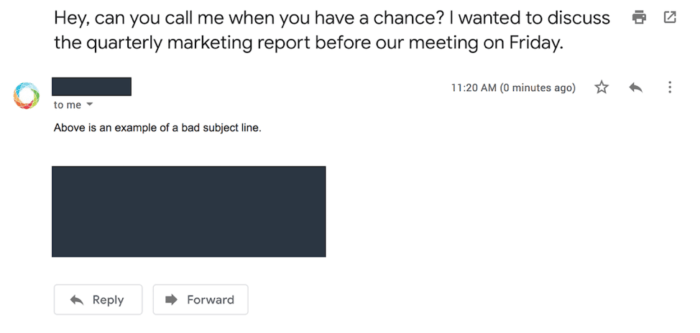
The above image is the worst example of an email subject line. Not only is it way too long, it includes the information that should be included in the email. Never do that!
Remember, your target audiences will be different, so you need to alter your approach for each one. However, making use of some general tools and trends can result in better subject line performance. From best practices to A/B testing and data analysis, there are many ways you can optimize email subject lines.
In the end, your subject lines are all about getting the subscribers opening them to see your message. This means that a subject line can make or break the success of your marketing campaigns. After all, you can have the best messaging within an email but if you aren’t getting people to open it, they aren’t going to see it.
Personalize your subject lines
People won’t “hear” you, or pay attention until they perceive what you perceive. So help them to see what you see by adding some personalization to your email marketing campaign.
As well as helping you form a relationship with the email recipient, personalization can have a significant impact on the success of your campaign. Getting more clicks, fewer unsubscribes, higher customer satisfaction, and more sales are some of the undeniable perks of personalization. So how do you create a personalized subject line?
There are a number of options, including adding information about your customers, such as their name, location, transaction history, recommended products, social media accounts, birthday reminders, etc. All of these methods can help you establish a more intimate connection with your subscribers.
Take a look at the benefits of using personalized emails from the research carried by the Institute of Data and Marketing (IDM):
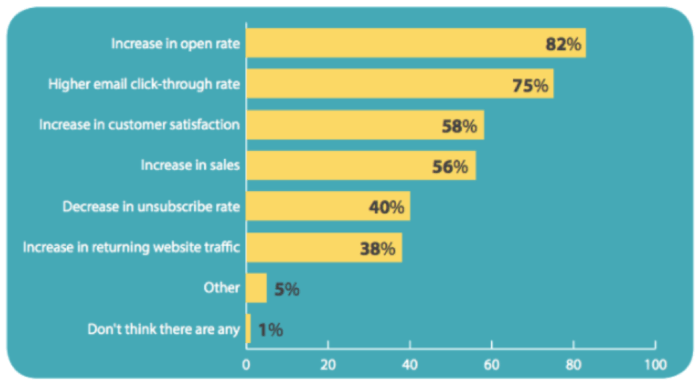
So next time you try creating an email go for “Hey Nick!” in the subject line instead of using the same old “Dear valued customer.” This could help increase your open rate, click-through rate and customer satisfaction.
More importantly, your email recipients will see that the content was created specifically for them rather than a mass audience, which is an experience that more consumers are coming to expect.
![]()
Have a look at Zivame’s email marketing campaign:
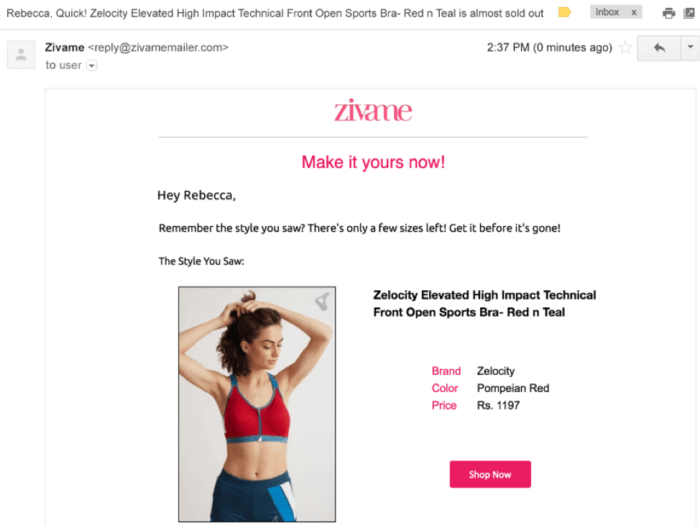
The brand has personalized the email by referring to the recipient in particular instead of typical “Dear Customer”. It also mentions the recipient’s previous searches, which clearly shows that the business is interested in offering products according to their customers’ tastes and preferences. Last but certainly not the least, the email also includes alternative options to take into account that are dependent on the customer’s previous purchases and searches.
Create a sense of urgency
Have you ever come across the term FOMO? Yeah, the Fear Of Missing Out! People often have this fear as they don’t want to miss out on a great offer or product, especially now that social media can mean that products sell out faster or deals are more limited. This urgency can also increase email open rates by up to 22%, so it pays to make the most of FOMO. Below is the research added below carried out by National Mylife telling us more about the fear of missing out.
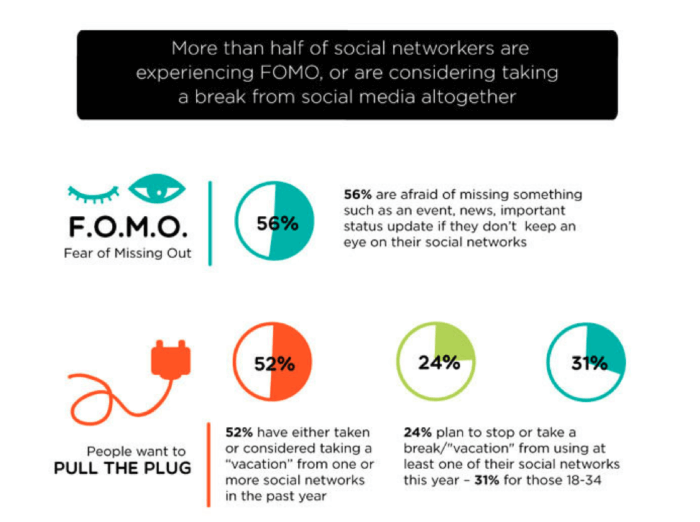
So, how can you create a sense of urgency on account of FOMO? How about offering a sale with an expiration date? Below is a great example of an urgent email subject line used by GetResponse:
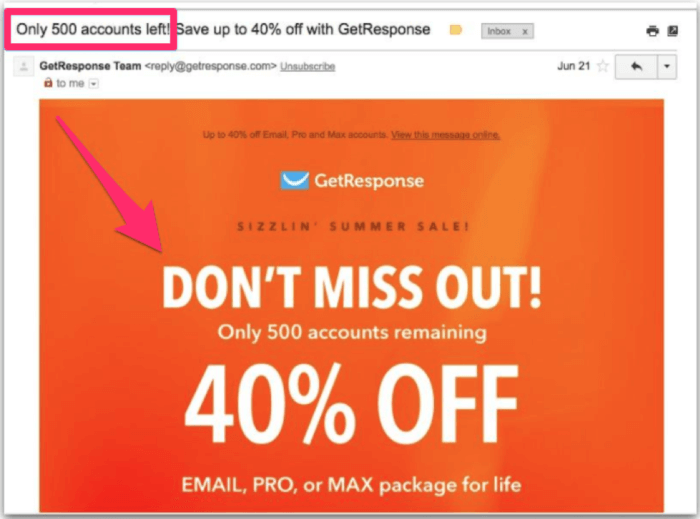
Image source: Getresponse
Not only does the subject line include a deal, it highlights that there is a limited number of accounts available. This shows recipients that they need to make the most of the offer quickly or they will miss out on the opportunity. Not only is this likely to increase the email open rate, the fact that it is coupled with a “Don’t miss out” message within the email is likely to see more people click through to the site.
Try to tell a story
We all love a great story! Whether you read books or watch movies, stories matter – often more than anything else. In fact, it is the stories that brands tell that keep us motivated and captivated. In fact, storytelling can increase conversions by up to 30% when you use it to answer customer questions.
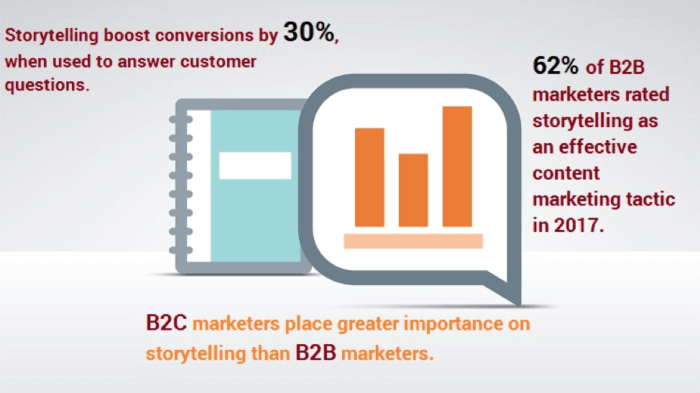
Using storytelling tactics, offering descriptions, personal experiences, case studies, etc. can put the prospect in the right position to understand your message. This means they are more likely to open an email in order to read the story. Take a look at an example added below How Neil Patel is using storytelling in his subject lines:

The subject line piques interest and is the obvious start to a story that the right audience will be interested in. It is a lot more effective than if the subject line went with a more generic option, such as “How to build a company”, simply because it is obvious that the story being told is based in fact.
Stimulate curiosity
Curiosity lies in every human by default. This means that coming up with something that piques the curiosity of your subscribers is only ever going to be a good thing.
However, it’s important to remember not give it all away in the subject line. Instead, hint at something that they’ll find out if they open your message, as this will increase the open rate.
Take a look at how Orbitz creates Curiosity in the subject line:

The subject line makes you want to know what hotels they are talking about and how low the prices are, as it insinuates that the hotels are good and the prices really cheap. It works much better than simply saying “great hotel deals”.
K-I-S-S
Keep it short and simple! No matter what type of email you’re sending, the subject line needs to be short, crisp, and precise, avoiding long sentences and unnecessary characters.
It is a good idea to write out several drafts before deciding on one. You can also choose aspects of each draft in order to make your message as short and snappy as possible. Below is a graph showing how short email subject lines can be impactful:
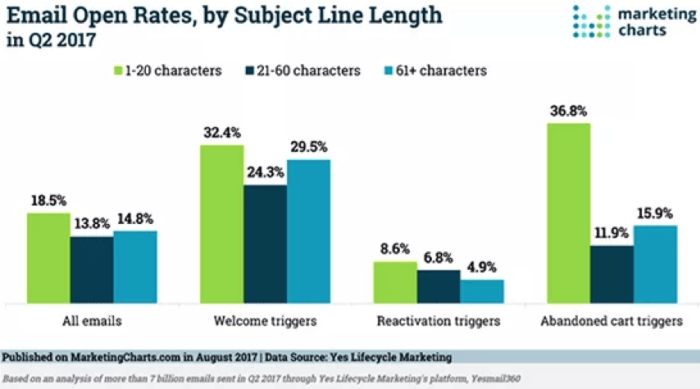
Image Source: Marketing Charts
As you can see, for all email types, it is the subject lines that are between one and 20 characters that see the best results. Shorter subject lines work best for abandon cart triggered emails, likely because these often include an offer to encourage conversion.
Here are some good examples of short email subject lines that can be used as templates, although it is important to remember that you should craft them to be reflective of your brand’s tone of voice:
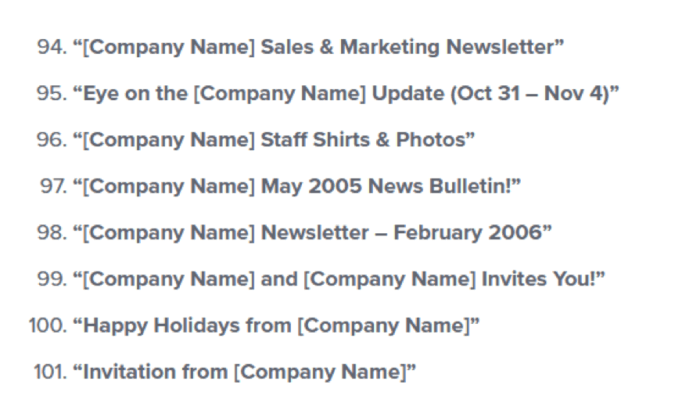
Image Source: OptinMonster
7 Tools To Create the Best Email Subject Lines
To help you create effective emails and subject lines that get them opened, there are a lot of user-friendly and affordable tools available. Here are a few options that will make creating effective emails a cakewalk:
Subject Line
This is a must-have tool for all marketing teams. Subject Line scores your email subject line from zero to 100 in order to show you how effective it is likely to be. For example, if your subject line fails to entice recipients, you’ll get docked points for not creating that sense of urgency, helping you to improve it.
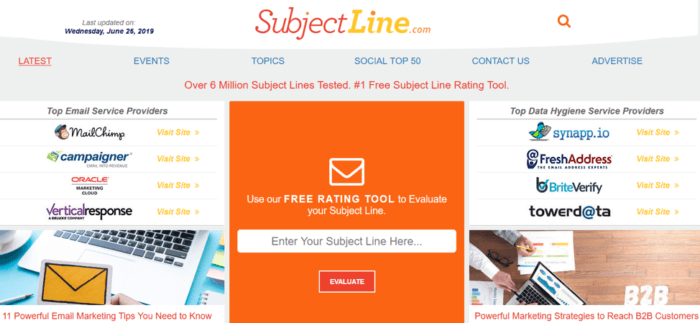
Headline Analyzer
If you want to nail your blog post titles and see them perform better in emails, go for Headline Analyzer. This tool digs deeper into how you structure your subject lines and what kinds of words you are using. Its awesome insights aid you in tweaking the reading level as well as the “word balance”. As a result, you can tap into audiences with more evocative words.
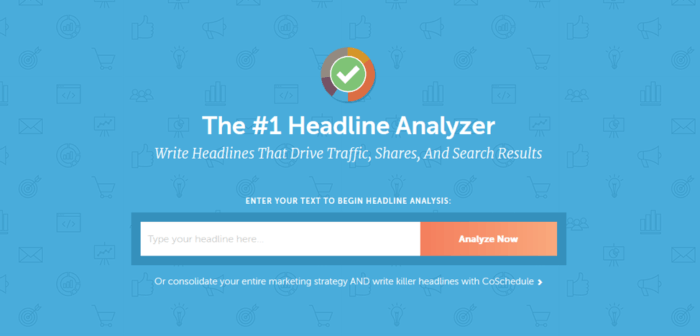
The Hemingway App
Most of the time, digital marketers get concerned as to whether the message in their subject line is going over the reader’s head. This app focuses on the readability of any content you create, helping to improve understanding. It also highlights several potential mistakes such as passive voice, adverb placement, phrases with simple alternatives, sentences that are either hard or extremely hard to read.
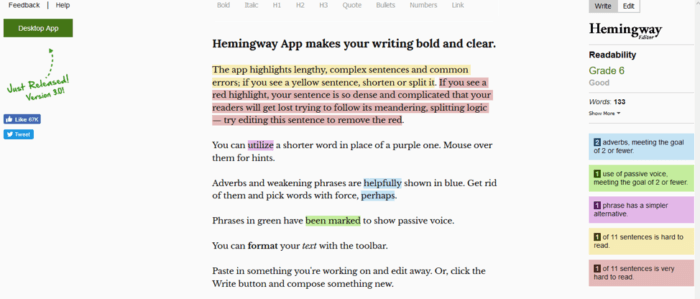
PutsMail
PutsMail provides you with a complete HTML mock-up of how your emails will look. This is extremely important, as you get a fair chance to step into the shoes of your recipients and see exactly what they are going to open as soon as they read the subject line.
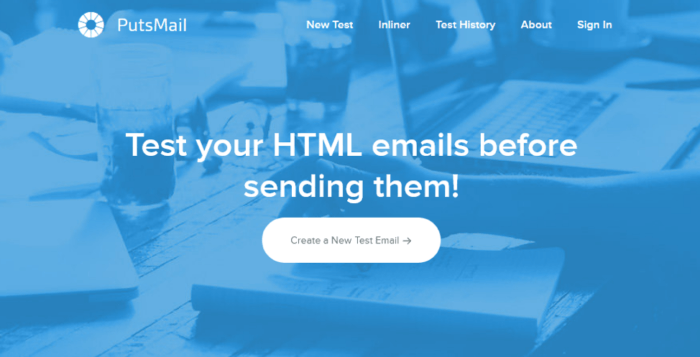
Send Check It
The tool provides similar insights as the other tools listed, scannability, reading level and length in regards to both characters and words. It delivers information such as a preview of how your subject line reads on desktop and mobile, comprehensive sentiment analysis, a scan for potentially spammy words, analyzing punctuation, capitalization and other word choices, scanning other elements such as the use of emojis and personalization.
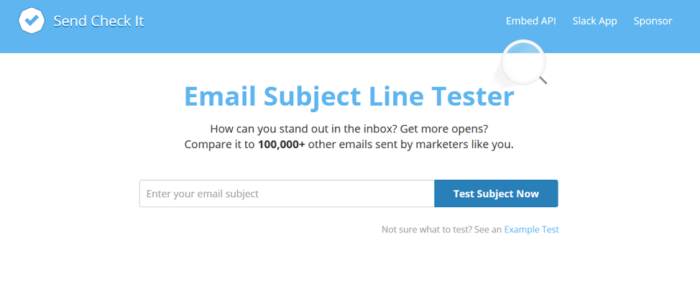
ISnotSPAM
With a confusing subject line, your end users are much more likely to mark your email as spam. The tool analyzes your message, including the subject line, to protect you from the spam filter and ensure your emails are getting into inboxes.
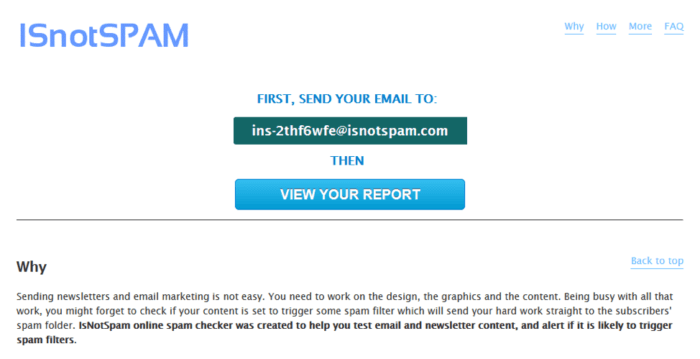
Subject Line Gold by Touchstone
I must say the touchstone tool is definitely worth checking out. The tool is the only one that lets you create a virtual simulation of your email marketing database to test subject lines for open, click and delivery rates. This gives you some insight into how well your email is likely to perform, allowing you to make improvements before it is sent.
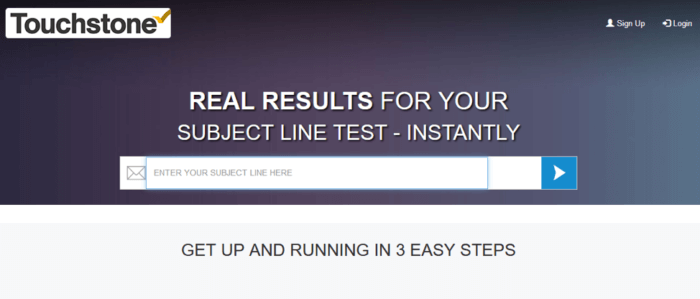
Final word
That’s a wrap! Your email campaigns might be great, but none of it will cunt if you don’t create an effective subject line. Following the pointers in this blog and using great email tools will help you get better open rates, as well as ensure there is a better chance for higher click-through rates. Of course, perfecting your email marketing campaigns is a lengthy process, but it’s the one that stands to make a major difference in the overall effectiveness of your emails.
